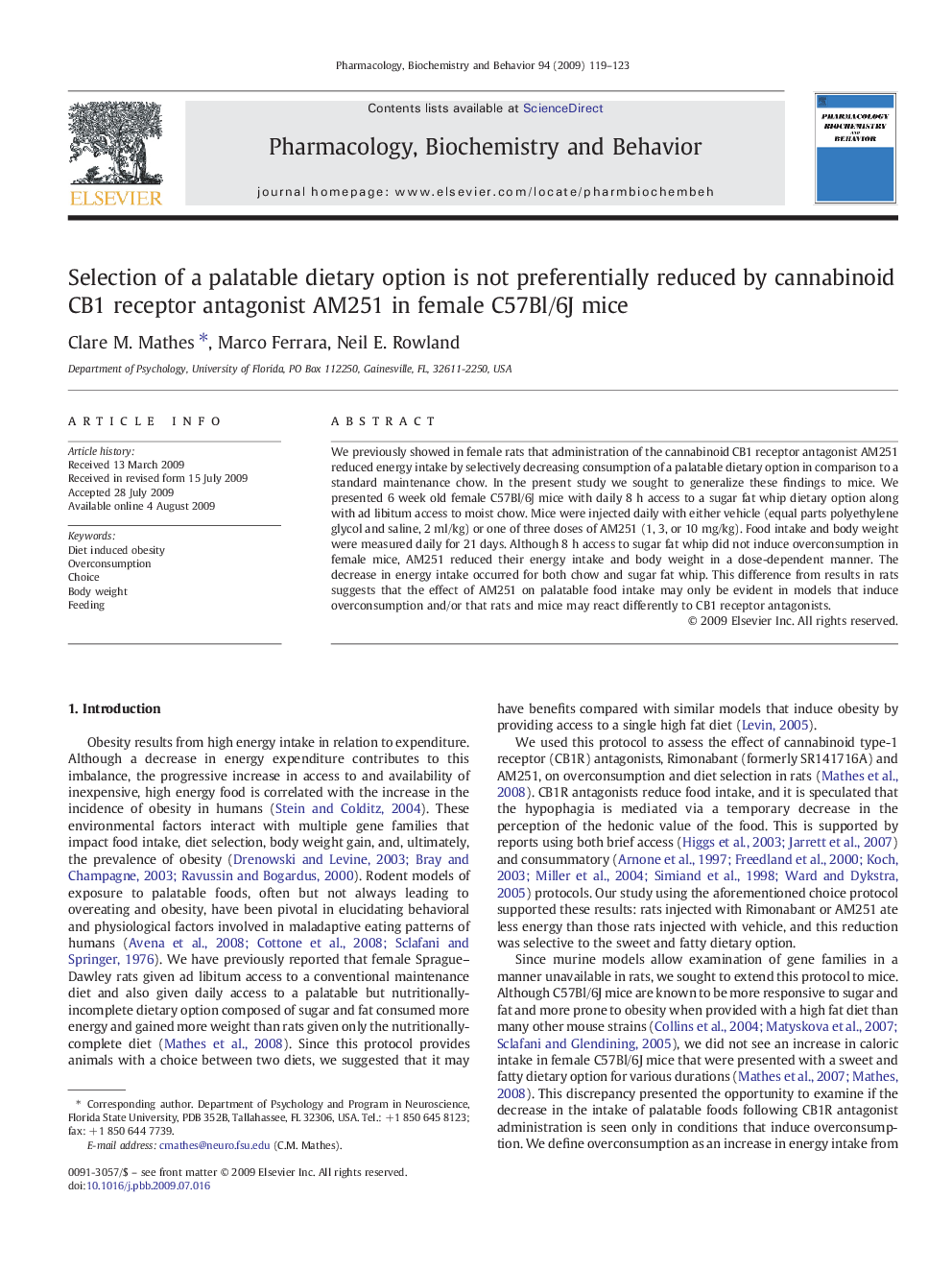| Article ID | Journal | Published Year | Pages | File Type |
|---|---|---|---|---|
| 2013601 | Pharmacology Biochemistry and Behavior | 2009 | 5 Pages |
We previously showed in female rats that administration of the cannabinoid CB1 receptor antagonist AM251 reduced energy intake by selectively decreasing consumption of a palatable dietary option in comparison to a standard maintenance chow. In the present study we sought to generalize these findings to mice. We presented 6 week old female C57Bl/6J mice with daily 8 h access to a sugar fat whip dietary option along with ad libitum access to moist chow. Mice were injected daily with either vehicle (equal parts polyethylene glycol and saline, 2 ml/kg) or one of three doses of AM251 (1, 3, or 10 mg/kg). Food intake and body weight were measured daily for 21 days. Although 8 h access to sugar fat whip did not induce overconsumption in female mice, AM251 reduced their energy intake and body weight in a dose-dependent manner. The decrease in energy intake occurred for both chow and sugar fat whip. This difference from results in rats suggests that the effect of AM251 on palatable food intake may only be evident in models that induce overconsumption and/or that rats and mice may react differently to CB1 receptor antagonists.
